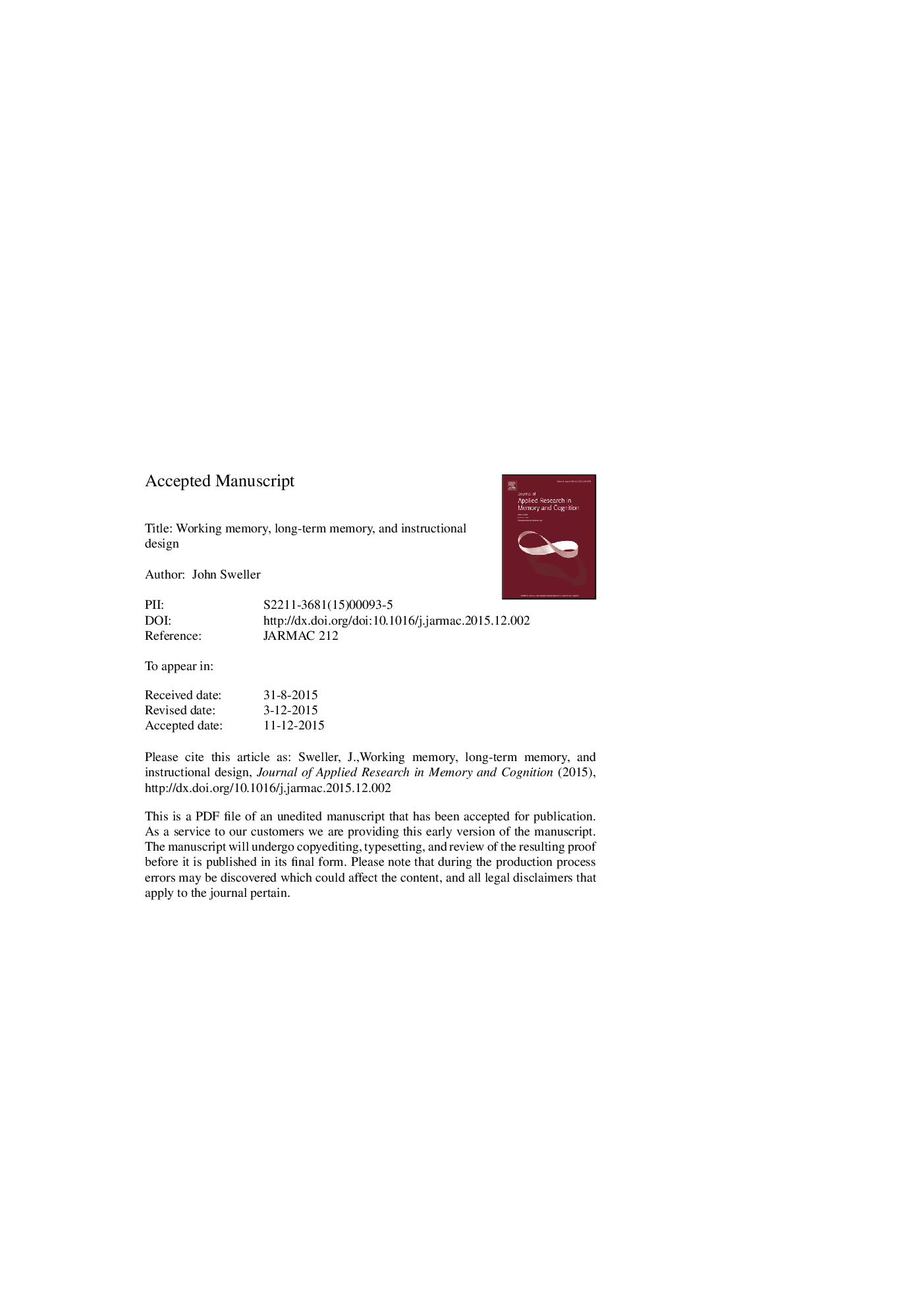| Article ID | Journal | Published Year | Pages | File Type |
|---|---|---|---|---|
| 5034063 | Journal of Applied Research in Memory and Cognition | 2016 | 30 Pages |
Abstract
Cognitive load theory is used to design instruction. Several aspects of human cognition are critical to instructional design. First, the theory assumes we have not specifically evolved to learn the topics taught in educational and training institutions. Second, these topics require learners to acquire domain-specific rather than generic-cognitive knowledge. Third, while generic-cognitive knowledge does not require explicit instruction because we have evolved to acquire it, domain-specific concepts and skills do require explicit instruction. These factors interact with the capacity and duration constraints of working memory to delineate a cognitive architecture relevant to instructional design. The working memory limits do not apply to biologically primary, generic-cognitive knowledge acquired without explicit instruction but do apply to biologically secondary, domain-specific knowledge that requires explicit instruction. Accordingly, cognitive load theory has been developed to provide techniques that reduce unnecessary working memory load when dealing with explicitly taught, biologically secondary, domain-specific knowledge.
Related Topics
Social Sciences and Humanities
Psychology
Applied Psychology
Authors
John Sweller,
